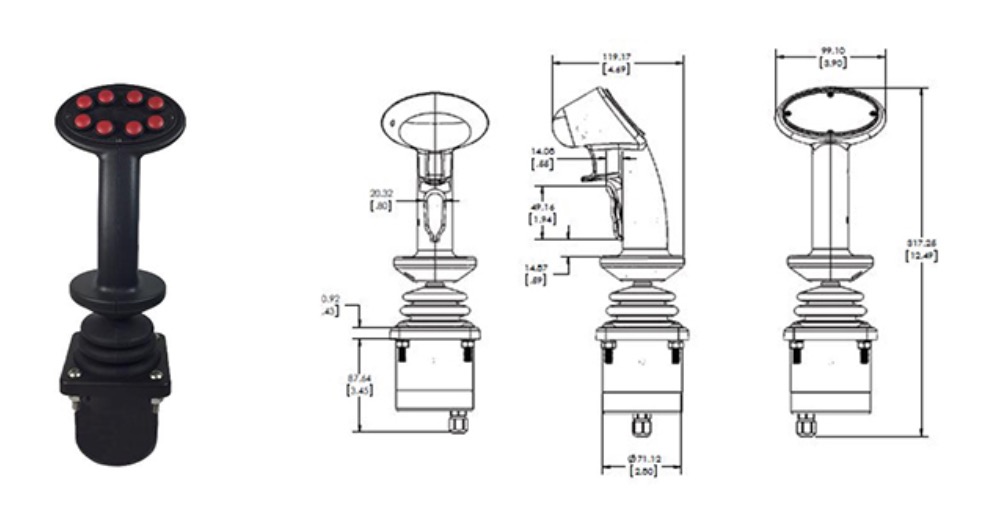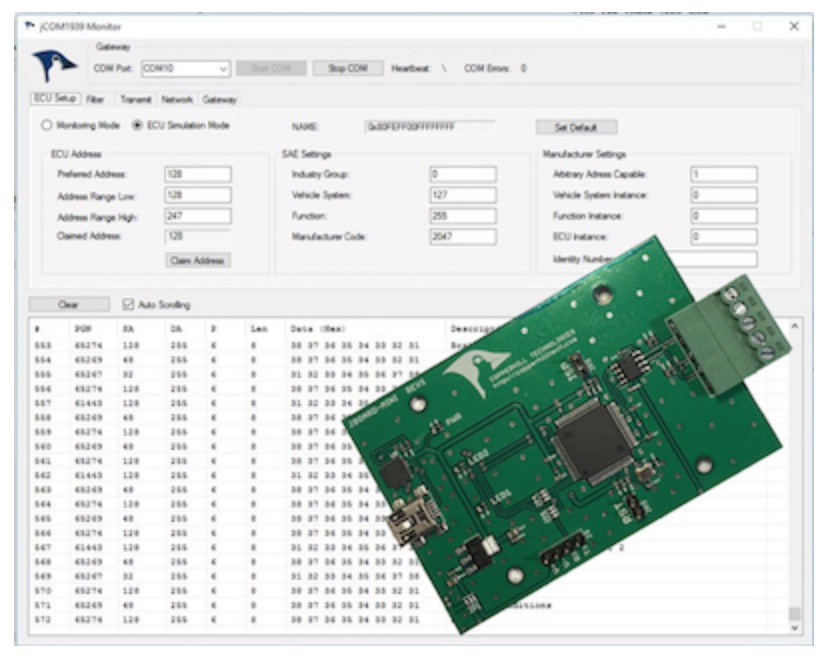Recent Posts
SAE J1939 Joystick Is A Hand-Operated Hall Effect Controller Designed For In-Cab Vehicle Applications
Posted by on
The HJ series of joysticks by Apem (USA) are hand-operated devices for in-cab vehicle applications. They are CAN-Bus-connectable, meaning the joysticks support CAN Bus protocols such as CANopen and SAE J1939. They apply non-contacting Hall-effect sensors, and they are designed for up to five million usage cycles. The products provide several handle options. Typical applications include refuse handling trucks, snow removal, and street cleaning vehicles.
The joysticks are specified for an extended temperature range of -40 °C to + 85 °C. The panel sealing is IP63-rated. The SAE J1939 version features up to 24 digital inputs and up to 11 analog inputs. The CANopen interface complies with the CiA 401 profile specification. To meet various application requirements, the joysticks are also highly customizable.
Main Features
- Rugged, hand operation
- Hall effect sensing
- 5 million life cycles
- Redundant output available
- CAN Bus J1939, CANopen and USB outputs options
- Several handle options
SAE J1939 ECU Simulator Board With USB Port
The jCOM.J1939.USB gateway board is a high-performance, low-latency vehicle network adapter for SAE J1939 applications. It allows any host device with a USB COM port to monitor SAE J1939 data traffic and communicate with the SAE J1939 vehicle network.
The board supports the full SAE J1939 protocol according to J1939/81 Network Management (Address Claiming) and J1939/21 Transport Protocol (TP). It is also supported by an extensive programming interface for Windows and Linux/Ubuntu applications, including full C/C++/C# source code for short time-to-market developments.
The strength of the board lies in the fact that the entire SAE J1939 protocol, including all timing requirements, is stored on-chip, thus taking the burden off the main system. The board uses a USB COM port to communicate with the main system, i.e. all data transfer is handled through a standard COM port access.
The communication protocol between the board and the main system is well documented and thus allows a porting to any computer system with a USB connection. Working source code libraries exist for Windows (C# under Visual Studio 2012/2013), Linux and its derivatives (C++ using Code::Blocks), and Raspberry Pi (C using the standard gcc compiler).
 Loading... Please wait...
Loading... Please wait...


